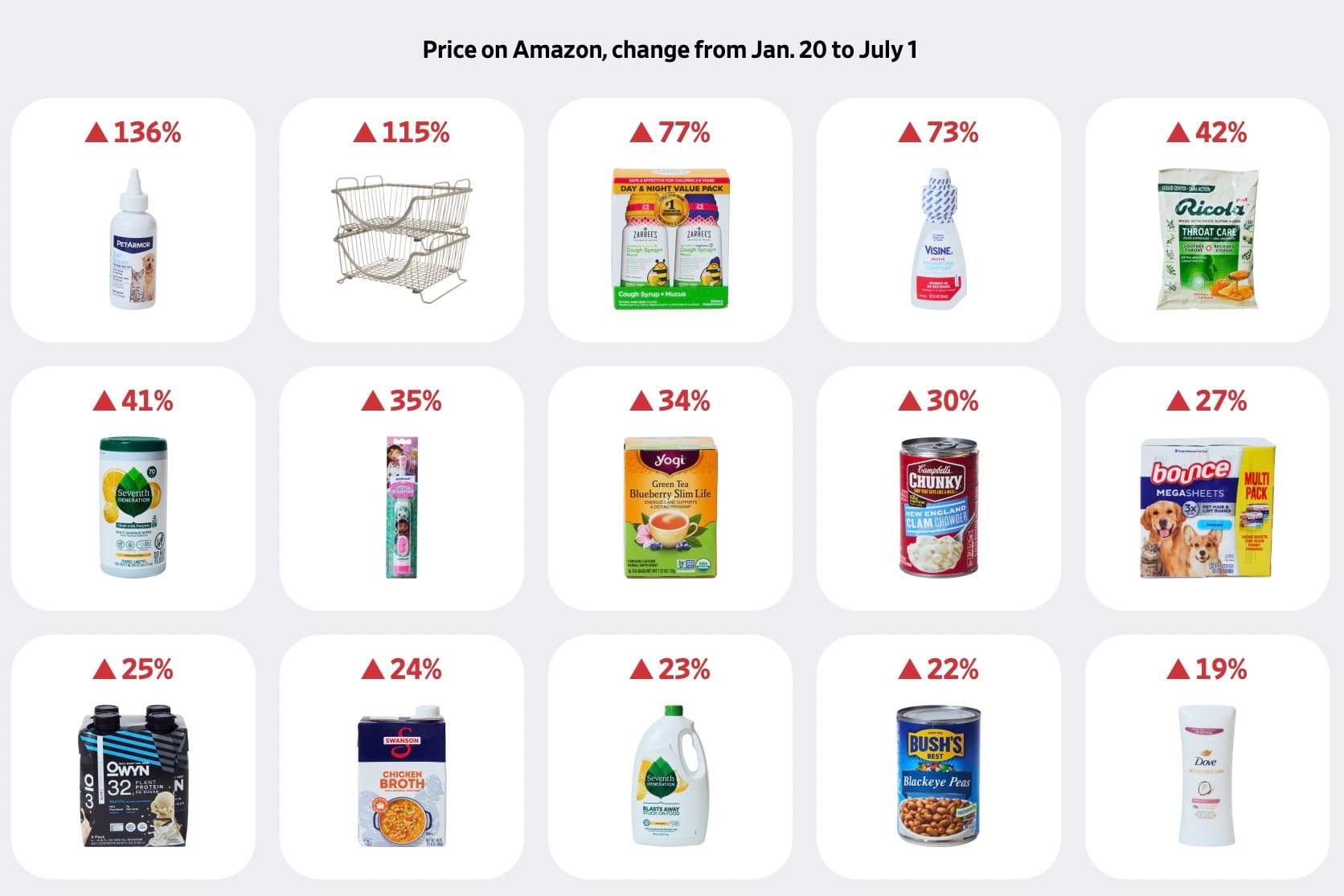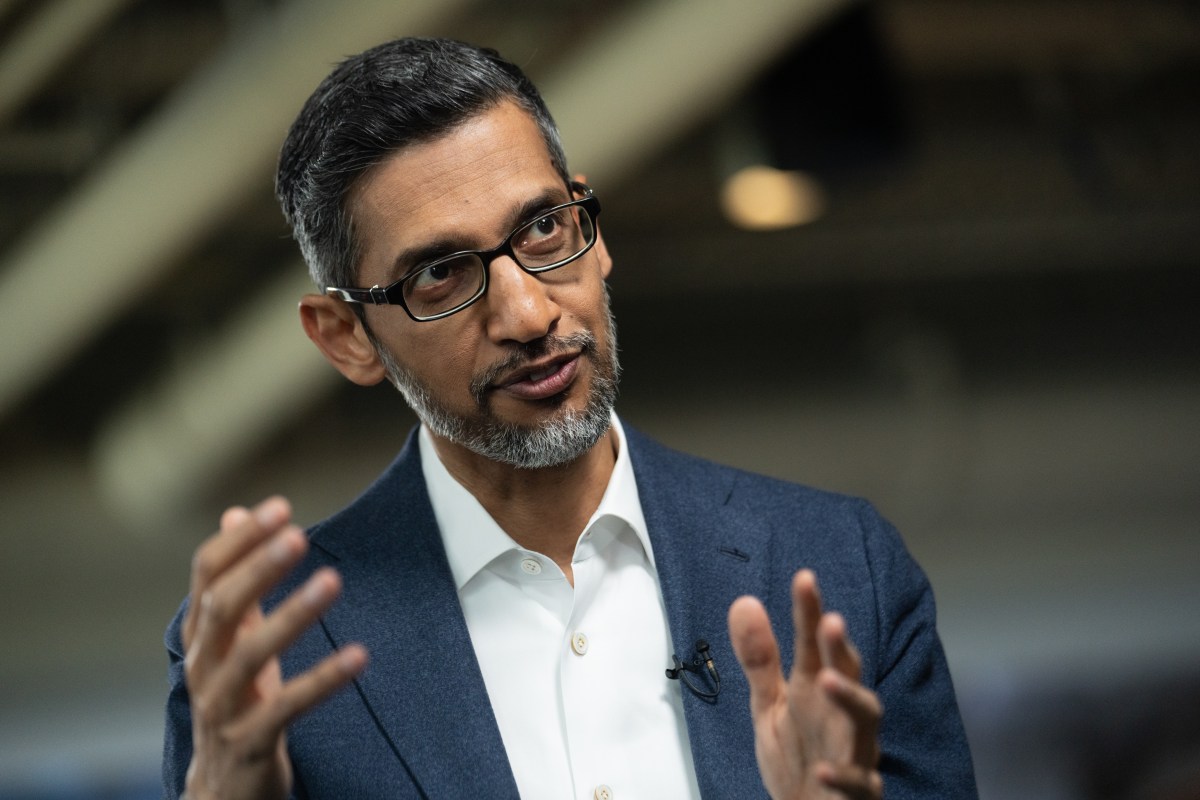Trump 💘 Big Tech, 📈 Big Tech’s Lobbying Blitz
This week in The Dispatch, we're covering Trump's love letter to Big Tech AI (AKA AI "Action" Plan) and the latest jaw-dropping stats from Big Tech's lobbying spree

Welcome back to The Dispatch from The Tech Oversight Project, your weekly updates on all things tech accountability. Follow us on Twitter at @Tech_Oversight and @techoversight.bsky.social on Bluesky.

💘 TRUMP LOVES BIG TECH: Trump’s newly unveiled AI Action Plan reads like a love letter to Big Tech – fulfilling their deepest desires. Amidst a plan that talks more than it does provide concrete action, the Trump Administration, specifically AI Czar David Sacks and the Office of Science and Technology Policy (OSTP), stakes a claim in the deeply unpopular AI moratorium debate. More than an allusion, it seems like Big Tech’s Admin boosters are picking a fight with Trump’s own GOP base.
The plan suggests federal agencies should “consider a state’s AI regulatory climate” when awarding funds and “should not allow AI-related federal funding to be directed toward states with burdensome AI regulations” – effectively threatening to withhold money from states that pass meaningful protections.
To be clear: Big states have the wiggle room to forego federal funding. Small states, especially conservative ones, may be more desperate for funding. So why push a Red State AI moratorium?
Even more puzzlingly, a few lines later, the AI “Action Plan” insists the federal government “should not interfere with states’ rights to pass prudent laws that are not unduly restrictive to innovation.” It’s a direct contradiction designed to chill state laws – without having to create a direct force and effect.
From a political perspective, it’s also a concession that the AI moratorium is a loser, something even Trump admitted himself.
Earlier this month, the Senate overwhelmingly defeated a 10-year ban on state AI laws – a move so toxic that it collapsed under overwhelming bipartisan backlash, with a vote of 99 to 1.
What really pushed the opposition into high gear? Survivor parents fought tooth and nail to beat back an AI moratorium that knocks state laws off the books — ones they lobbied hard for and even bear their children’s names.
A litany of GOP governors publicly opposed it, as did conservative groups including the Heritage Foundation, the Institute for Family Studies, and the National Center on Sexual Exploitation, which called the moratorium “unfathomably reckless.”
On Steve Bannon’s “War Room” podcast, Mike Davis, founder of the Article III Project, dismissed the entire premise of an AI moratorium as nonsense:
"These are not pro-American companies. These are CCP companies, and they have demonstrated that over and over and over again," Davis said. "Are we going to steal every copyright in America so these trillion-dollar companies can get more rich?"
When it comes to holding Big Tech accountable, the Trump Administration appointed antitrust enforcers who are holding Google, Apple, Amazon, and Meta accountable in the courts, and Trump signed the TAKE IT DOWN Act into law.
That’s not nothing, but it seems that anointing Big Tech CEOs and Silicon Valley-connected powerbrokers to sanction federal AI policy isn’t just a political problem; it undermines the good work they’re doing in other areas.
If the U.S. actually wants to lead the world on AI, it should embrace – not block – federal and state safety standards. Seatbelts don’t make Ferraris slower. They stop people from getting killed when Ferraris crash.

🏛️ HAWLEY, BLUMENTHAL TAKE ON AI COPYRIGHT ABUSE: Last week, Senators Josh Hawley (R-MO) and Richard Blumenthal (D-CT) introduced the AI Accountability and Personal Data Protection Act – a bipartisan bill that protect consumers’ data rights and hold Big Tech companies accountable for illegally pirating creators’ copyrighted works to train their AI models – giving individuals the power to sue companies that violate the rule (AKA private right of action).
Hawley sounded the alarm on AI companies’ orchestration of “the largest intellectual property theft in American history.” Blumenthal said Big Tech companies should be held liable “when they breach consumer privacy, collecting, monetizing, or sharing personal information without express consent.”
In a sharp contrast to the AI moratorium, which drew widespread bipartisan backlash, this is the way – two senators from opposite sides of the partisan divide are working together to thread the needle between innovation and commonsense protections. This isn't their first rodeo, and if you're looking for a credible starting point on AI action that Congress can take on, give their bipartisan AI framework a look.

🛒 AMAZON’S MONOPOLY MARKUP: In a complete and utter shock to no one, Amazon has quietly hiked prices on hundreds of household essentials, according to an investigation by the Wall Street Journal. Tracking more than 2,500 items – including baby wipes, detergent, and pet food – the WSJ found prices rising as much as 136% on products Prime users are most likely to “Buy Again.” That kind of sounds like something a monopoly would do.

By controlling the platform that sellers depend on and using algorithms to drive up prices on high-demand items, Amazon is waging war on its own customers – hoping they don't notice the incremental surcharges.
This is exactly the kind of behavior at the center of the Federal Trade Commission’s (FTC) historic antitrust lawsuit against Amazon. The FTC argues that the company uses its monopoly power to box out rivals, punish sellers, and inflate prices for everyday shoppers, which sounds exactly like what the Wall Street Journal’s investigation uncovered.
Famously, the FTC case spotlights “Project Nessie,” a tool Amazon uses to raise prices on frequently purchased items by triggering competitors to follow Amazon’s price hikes through algorithmic and platform pressures. The real-world effect? You’re paying for Amazon inflation, which has allegedly netted Amazon over $1 billion in extra profit.
The case isn’t headed to trial until 2026, but the WSJ’s findings should hand regulators more ammo – and a reminder of how Amazon’s algorithms aren’t just reacting to the market. They are the market.

✈️ DELTA TO PASSENGERS: “AI MADE ME DO IT”: Delta Air Lines is phasing out fixed ticket prices in favor of a system that lets algorithms price discriminate based on how much the AI pricing system thinks you should pay. The airline's new AI pricing model stalks your online activity to predict your willingness to pay and jacks up the price to squeeze every possible cent out of you.
For example, former FTC Chair Lina Khan raises the point that Delta will be able to know if you’ve had a death in the family by scanning your emails and charging you significantly more because they know you need to attend a funeral.
Demanding answers, Sen. Ruben Gallego wrote to Delta's CEO and blasted the system's "predatory pricing." Gallego warned it could “exploit travelers at their most vulnerable.”
Tech watchdogs have sounded the alarm about the very real need for a federal privacy law that stops Big Tech from collecting data that ultimately helps companies price discriminate. We think the federal government should investigate.

Big Tech’s 2025 Q2 Lobbying Breakdown:
- Meta: $5.8M – lobbied on AI, misinformation, and kids’ online safety.
- Amazon: $4.5M – targeted Section 230, AI, and telehealth policy.
- Google: $3.2M – lobbied on AI, privacy, and EU competition rules.
- Apple: $2.3M – targeted the Open App Markets Act and privacy bills.
Source: Issue One

🔋 THE AI ENERGY MYTH: The Real Cost of Data Centers: Last week, Data and Society released a brief that cuts through the hype and spin around AI data center expansions. Their myth-fact analysis below:
-
MYTH: Data centers will revive struggling local economies.
FACT: The jobs are few and fleeting, while tax breaks and higher utility bills leave communities worse off. -
MYTH: They’ll fast-track a clean energy transition.
FACT: Most run on fossil fuels, with fracked gas and coal keeping the lights on as renewables lag. -
MYTH: Rapid construction is critical for national security.
FACT: Supply chains for chips and minerals remain global, and rushed builds increase vulnerabilities. -
MYTH: Giant data centers are essential for our AI-powered future.
FACT: Energy forecasts are speculative. Overbuilding could burden regions with stranded infrastructure and long-term costs.






Slide into our DMs…
We want to hear from you. Do you have a Big Tech story to share? Drop us a line here.






